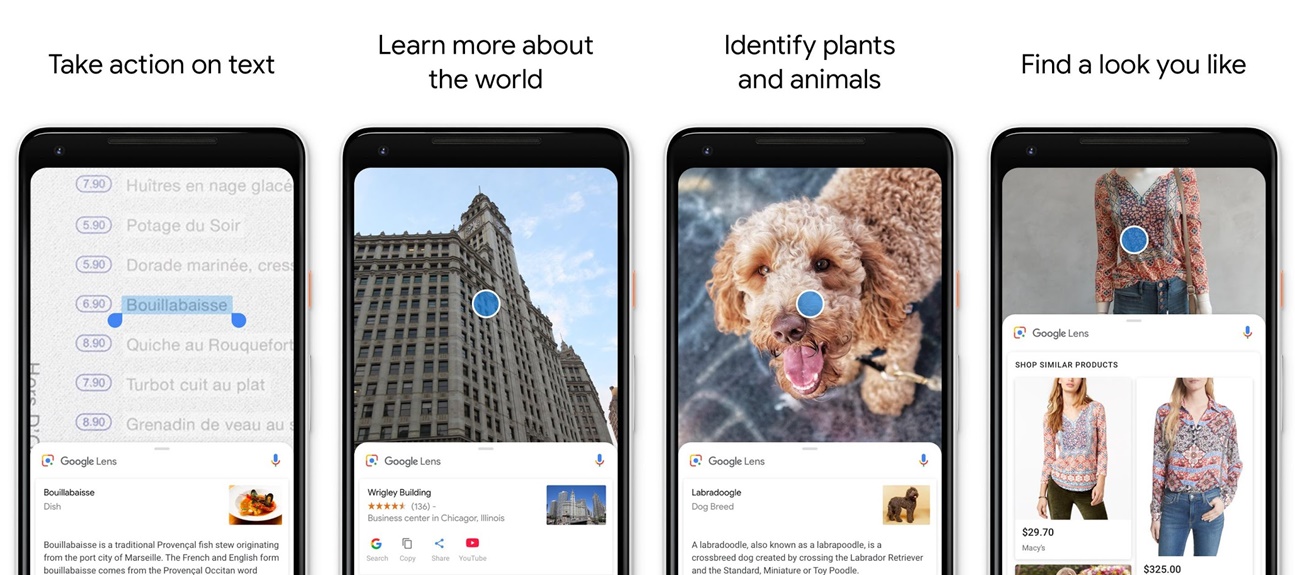Here’s what you need to know and how it can impact your business.
Google’s AI experimentation is moving at a fast rate. Since Google announced the Multitask Unified Model (MUM) in early 2022, consumer teams have been meddling with its capabilities to help solve complex tasks.
What are complex tasks? Planning a trip, fixing a broken gadget, searching for the best places to have dinner tonight. Unlike a simple task where you know exactly what to search for, Google’s internal data says it takes people eight searches on average to complete complex tasks.
Quick question: How long does it take for you to find what you want?
The Lowdown on Google Lens
At Google’s last event, they shared how AI innovations are helping people tackle complex tasks faster and easier. For example, Google Lens is being optimized to identify any problem you can have with a broken appliance simply by pointing your camera at it.
Google claims that it will identify the problem and connect you to helpful information across the web to fix it. Imagine you’re home and suddenly your washing machine stops working. With all the squeaking and beeping, you try to see what the issue is, with no real knowledge about them.
Here’s when Google Lens would step in: by pointing your camera at the issue, it could connect you to an expert or simply show you what’s wrong. Also, using MUM, Google can show you the “related topics” and help you understand what’s in front of you with YouTube videos or related articles.

Would you use the Google Lens feature? Let us know in the comments below!
Our Take
Even though Google Lens seems to be optimized for the better, we can’t help but notice that this new feature may have a similar outcome to the Google Voice Project. Will the story repeat itself?
Lately, we see how Google adopts automation resources in every aspect of Search advertising campaigns, forcing businesses to be ready for constant change and be open to new ways of searching. However, this approach may look like marketers that have invested in the manual process of search campaigns aren’t taken into consideration.
Why? Because we’ve already seen something like this and advertisers weren’t exactly taken into consideration. With the Google Voice Project, devices such as Google Home and modern Google phones were able to identify the user’s search request by voice. This sounds very efficient and comfortable, but where can Google place Search ads if the user never encounters the on-screen platform?
Companies beware: this move would create a significant gap between “forward-looking” advertisers and manual-processing advertisers in Google’s eyes.
The question we make ourselves (and you) is: should Google dictate advertisers’ moves when it’s supposed to be a tool and not a rulebook?
Our answer: marketers should be able to decide if automation is their wildcard or not. It isn’t exactly democratic, better, or easier if there are advertisers that would need to make a huge change in their work modality to fit into the latest fashion and be benefitted from Google’s algorithm or new feature.
We don’t see Google changing its automation outlook any time soon, so be prepared for even more updates and innovations in search.
In any case, don’t worry. Quantikal will be on the lookout for you. Stay tuned!
About Quantikal
Quantikal is a data-driven performance marketing agency based in Buenos Aires, Argentina. We help clients scale their business through profitable digital ad spending by constantly obsessing over clients’ key metrics. Quantikal’s experience working in diverse online companies in marketing roles including media buying allows us to provide solutions in the ever-demanding increase of marketing performance, doing more with less thus becoming a strategic partner.

Add a Comment